An Ojibway Family & The Making of Detroit
Chantel Henry (Ginew Kwe or “Golden Eagle Woman”) became aware of her and her family’s deep connection to the city of Detroit about four years ago. We are so honored that she decided to share with us the story of how her grandparents, Arnold and Freda Henry, came to Detroit and her family’s rich history in the city.
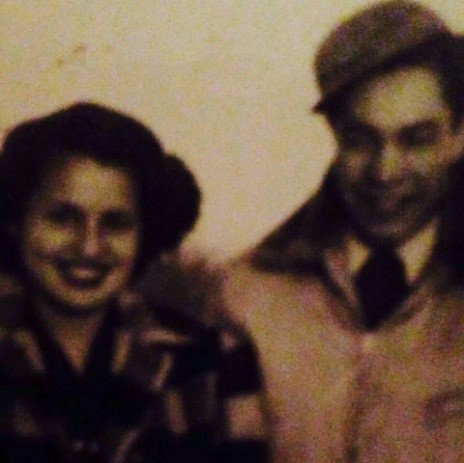
Gran and Gramps:Then 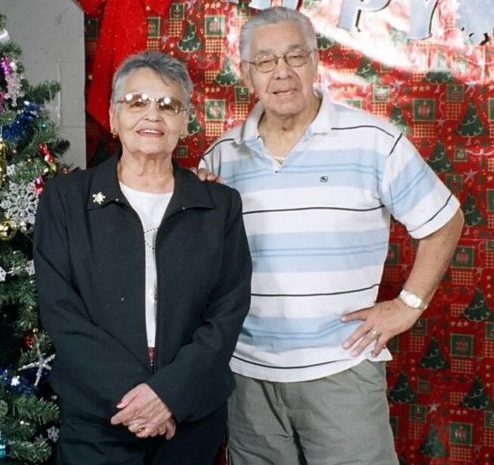
Gran and Gramps: Now
Grams and Gramps were both born in Canada and lived on Chippewas of the Thames First Nation Reservation. They were taken from their families at a young age and placed in Residential Schools run by the Baptist and Catholic Church systems. My Grams was in the Mohawk Institute ‘Mush Hole’ Residential School for a year before she ran away and never returned. Gramps was in Mt. Elgin Residential School from 1944 to 1946. They soon met each other and were married in 1949.
My grandparents had 6 kids, 2 of which have passed on. My dad and 2 uncles were born in Canada. However, my gramps was part of the Urban Relocation program, so he and my grams moved to Detroit in 1954 where they had my 2 aunties and youngest uncle.
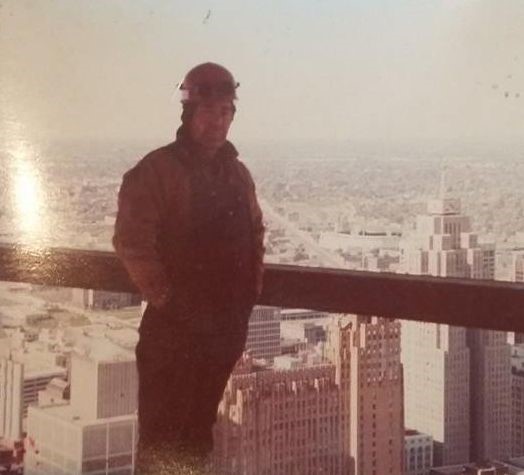
Gramps at work on the Detroit Renaissance Centre, ca 1975 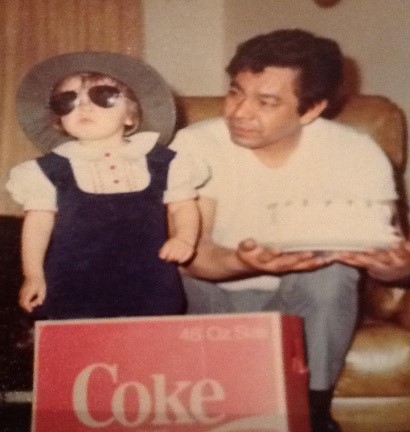
Chantel with Gramps
When my grandparents moved to Detroit, they found a house on Lawndale Street in the Southwest part of the city. They told me they had to petition the block club to be able to purchase the house because many thought they were too ‘brown’ to live in the mainly Polish neighborhood. Eventually, they were welcomed to buy the house and moved in. They lived in that house for over twenty years.
Gramps was an iron worker. He, along with my uncle, began work on the Detroit Renaissance Center in 1975. Gramps worked on the highest tower and my uncle work on the lower towers. You can say that my family played a part in the development and building of modern-day Detroit. My Ojibway family coming back over to Detroit to help build many of the historical buildings shows how our Nations have survived colonization and have been a major part of the history of Detroit and still are to this day.
My grandparents also played a part in the development of the North American Indian Association, a friendship center in Detroit. My Grams especially helped develop programs there. There was a Native American parade through Southwest Detroit, and there were Pow Wows downtown at Hart Plaza and Fort Wayne. My grandparents took part in a lot of Native events that happened around Detroit in the 70’s.
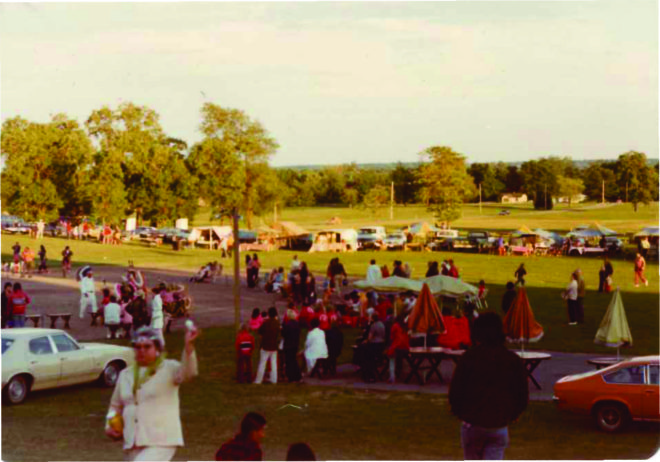
I honor the life of my grandparents and family in being able to tell our story. Many do not realize that, before the colonizers came over, the Detroit area was occupied by the Ojibway, Potawatomi, and Odawa Nations. I hope that sharing these stories strengthens and encourages the younger generations. Being able to remember and tell this story will hopefully give them the same sense of pride in who they are as it gives for me.
After the Henry side of my family moved back to Chippewas of the Thames First Nations Reserve in Ontario, Canada, I stayed in Southwest Detroit with my mom’s family. However, I usually traveled to and stayed on the reservation almost every weekend, during school breaks, and summers. I grew up in both societies, but I have always felt more connected to my Native heritage, so I claim that more than my other nationality.
It was a struggle growing up. Although you may not picture it now, I was racially profiled by many in my neighborhood and in the schools I went to because I was too ‘brown’. Most did not know any Native American history outside of the untruthful things taught in history class. So many people thought I was Hispanic because they were taught that Native Americans didn’t exist anymore. I can remember getting in trouble – even kicked out of – history classes for debating with the teachers that what they were teaching was not true.
My Mother’s side of my family were originally from North Carolina, however I do not know much about why they came to Detroit. I can guess that, since my grandfather worked on boats and Detroit is surrounded by so many waterways, he probably needed to be stationed here. Unfortunately, I can no longer ask about their history because my grandparents, mother and all aunties and uncles from her side have passed away.
I do know that they lived two blocks away from my dad on Renville Street and that my parents went to school together. From what I was told, my Dad used to hang around with my Mom’s brother and that is how they started dating. My mom was 16 and my dad was 19 when they got married and became pregnant with me.
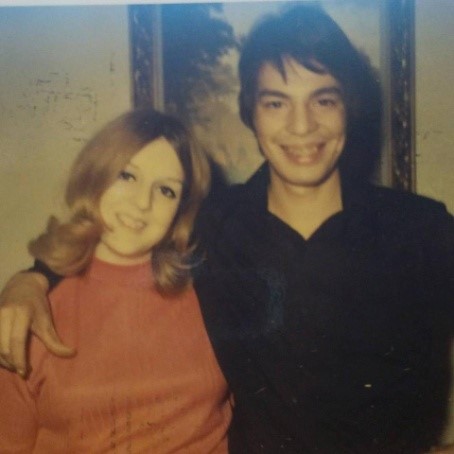
My grandparents moved back to the Reservation after Gramps had his first heart attack in 1977. At 6 years old, I wanted to go with them so bad, but they did not want me to leave Detroit to grow up on the Reservation. I am sure their experience in the Residential Schools had some impact on that decision.
After the Henry side of my family moved back to Chippewas of the Thames First Nations Reserve in Ontario, Canada, I stayed in Southwest Detroit with my mom’s family. However, I usually traveled to and stayed on the reservation almost every weekend, during school breaks, and summers. I grew up in both societies, but I have always felt more connected to my Native heritage, so I claim that more than my other nationality.
It was a struggle growing up. Although you may not picture it now, I was racially profiled by many in my neighborhood and in the schools I went to because I was too ‘brown’. Most did not know any Native American history outside of the untruthful things taught in history class. So many people thought I was Hispanic because they were taught that Native Americans didn’t exist anymore. I can remember getting in trouble – even kicked out of – history classes for debating with the teachers that what they were teaching was not true.
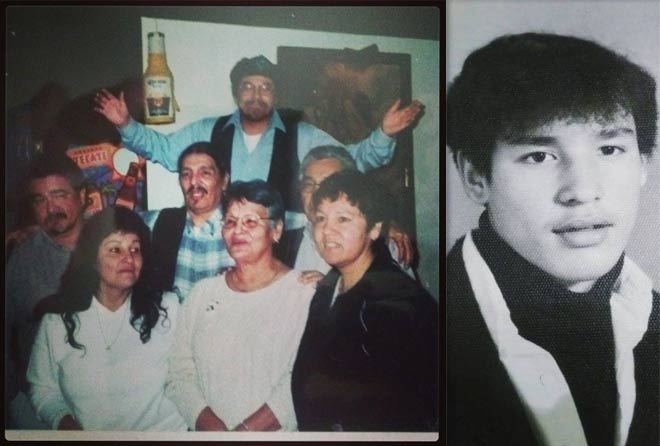
I lived is Southwest Detroit until I was 12 years old. My mother started working at General Motors and around the time her parents died, so she did not have an interest in living in the neighborhood anymore. We moved a lot, but I can remember still encountering the same racial issues as in our old neighborhood. I finally convinced my grandparents to let me move to the reservation with them.
I moved there when I was 16 and graduated from Saunders Secondary School in London, Ontario. I was really shocked when I moved there because the racial incidents increased more than I ever imagined. We were followed by security in stores at the mall, and I witnessed the Native kids getting blamed for fights that the non-Native kids started. A teacher once told me he did not know why I even came to school because all I ever was going to be was pregnant and stuck on the reservation my whole life.
That final experience is what really pushed me to go beyond these stereotypes that people had of the Native population. I graduated and went to college. I got my Bachelor’s degree in Health Education from Central Michigan University.
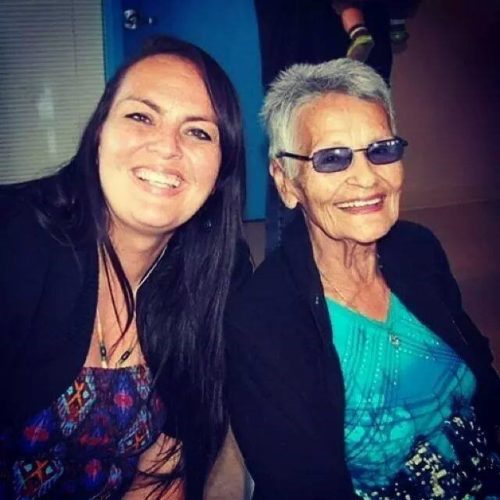
It amazes me to this day how life goes in full circle. After moving around and doing many things, I moved back to Michigan following the birth of my 3rd child. I was looking for some resources when I was referred to American Indian Health and Family Services of Southeast Michigan. When I was told were it was, I was in shock. It is located on the very block where I grew up. I have been up and down that street for many years and never knew that building, a former church and rectory, existed.
The Archdiocese of Detroit sold the church to American Indian Health and they moved there after downtown Detroit facility was destroyed by an Arson fire. Even more amazing was finding out that my Aunties worked at American Indian Health during the late 1970’s and early 1980’s. I have so many connections to the neighborhood and the community that I did not even realize.
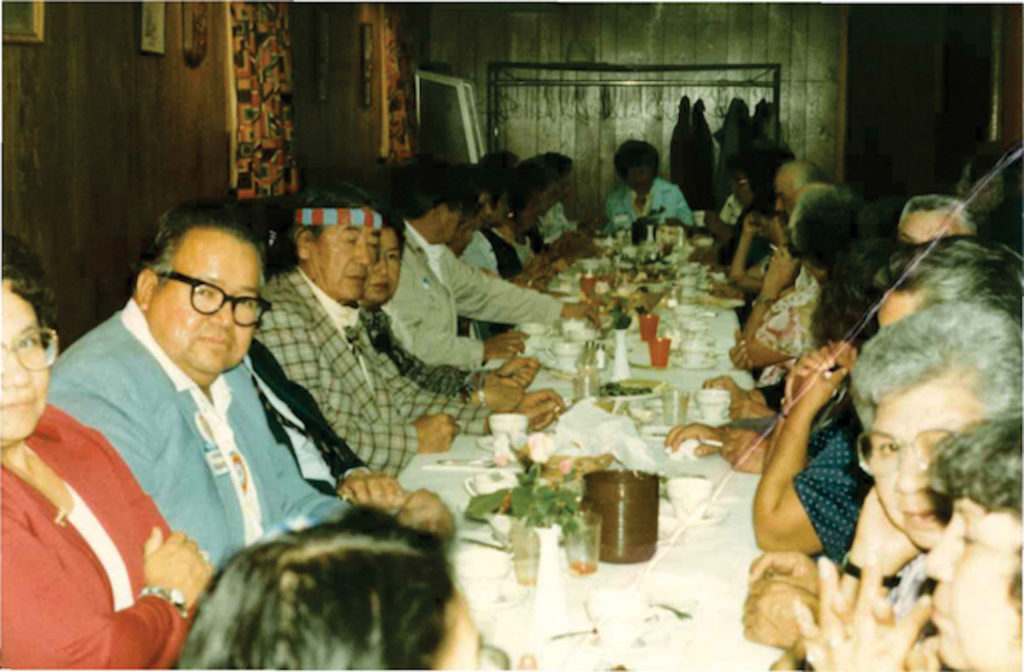
Since my referral to American Indian Health in 2011, I have been an employee there in many different positions. Currently, I am the REACH (Racial and Ethnic Approaches to Community Health) Coordinator and assist the community with various health issues awareness.
I am grateful for all the experiences that I have had being Native in Detroit and with my family growing up here. It is my wish to share my story with others and help create connections to the city and community. It is my honor to be part of the family and experiences of my life, and now able to share this with others.
I have found that many of us keep our experiences so close that others are not aware. So now it is time to share and help educate other populations about our history. Before Gramps passed, the community tore down the residential school that he attended and built a memorial. I asked him to speak about his experiences so we can become more aware. He told me that he didn’t need to do that because that is what he has me and my uncle for. So here I am, sharing what I have come to understand and helping to make sure that gramps’ and grams’ legacy is known.
Chi Miigwetch Mishomis minwaa Nokimis!!
(Thank you very much grandpa and grandma)
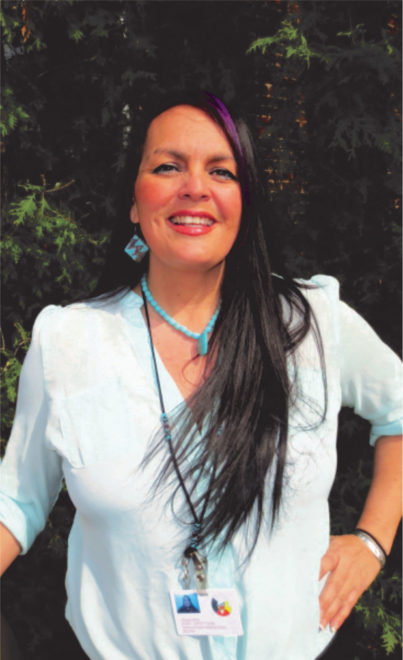
Chantel Henry is the current REACH Coordinator at American Indian Health and Family Services and will be featured in our upcoming episode of Detroit this summer on Family Pictures USA!


No comments yet.